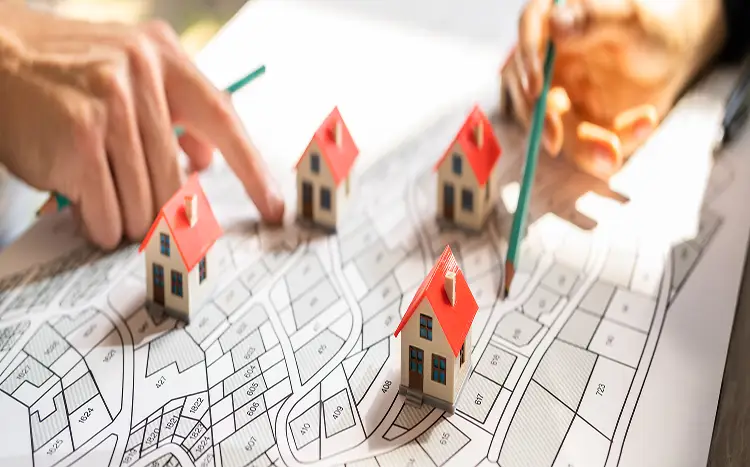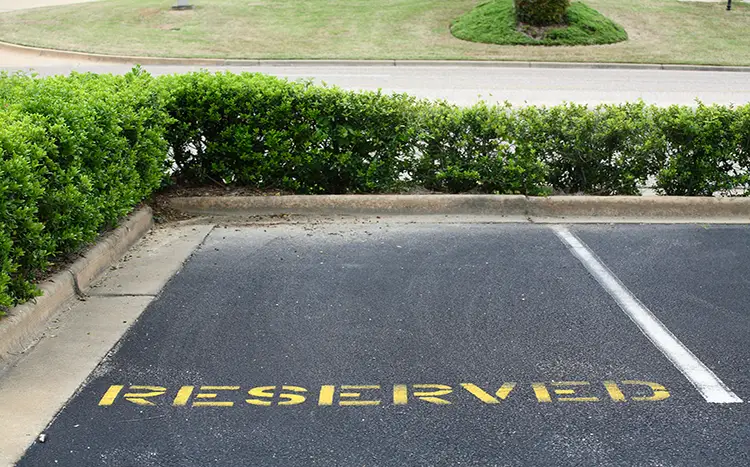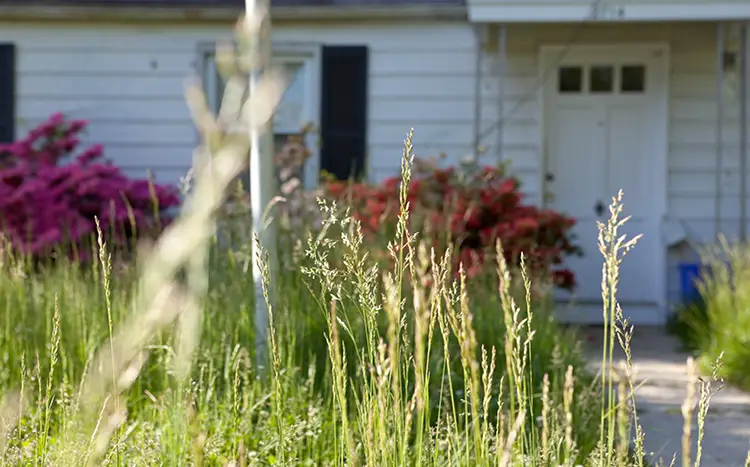Navigating and Resolving Neighbor Disputes
Published on December 1, 2023 | 5 Minute read

Melanie
Ortiz Reyes
Content Specialist
In the tapestry of community living, the occasional discord between neighbors is an almost inevitable thread. From noisy gatherings to property boundary disputes, these conflicts can disrupt the tranquility of our homes. However, understanding common neighbor disputes and having effective resolution strategies in place can transform discord into harmony. Let’s explore some common neighbor disputes and how to resolve them:

Noise Complaints
One of the most prevalent neighbor disputes revolves around noise. Excessive noise can strain even the most cordial relationships, whether it's late-night parties, barking dogs, or construction sounds. Active communication is key here. Instead of letting frustration fester, approach your neighbor calmly and express your concerns. Share specific instances, and collaborate on finding compromises, such as establishing quiet hours or investing in soundproofing solutions. Open dialogue ensures both parties understand each other's perspectives and paves the way for a more peaceful coexistence.
To escalate the resolution process, some communities have noise ordinances in place. Familiarize yourself with local regulations and, if necessary, involve local authorities. However, maintaining a neighborly relationship through open communication should be the first step in resolving noise-related disputes.

Property Line Disputes
Property boundaries can be a source of contention, especially in densely populated neighborhoods. Disputes may arise over encroachments, tree branches crossing into neighboring yards, or disagreements about shared spaces. To address these conflicts, start by referencing property surveys and boundary markers. If uncertainty persists, consider hiring a surveyor to provide a professional assessment.
Engaging in open conversations with your neighbor about property lines is crucial. Approach the discussion with a collaborative mindset, aiming to find mutually agreeable solutions. Legal action should be a last resort, as it can strain relationships and incur significant costs. By prioritizing communication and understanding, neighbors can often find common ground.

Pets and Animal-Related Issues
Pets bring joy to our lives, but they can also be a source of tension between neighbors. Barking dogs, unleashed pets, or even allergic reactions to nearby animals can lead to disputes. If you're facing issues with a neighbor's pet, initiate a friendly conversation to address your concerns. Suggest solutions like obedience training, leash usage, or soundproofing measures to mitigate disturbances.
Local ordinances often outline pet-related regulations, so familiarize yourself with these guidelines. Encourage your neighbor to abide by these rules for the well-being of both parties. In cases of persistent issues, consider mediation services to facilitate a constructive dialogue and find compromises that prioritize harmony for both pet owners and non-pet owners alike.

Parking Predicaments
Limited parking spaces can spark conflicts among neighbors. Whether it's overcrowded street parking or disputes over designated spots, these issues can strain relationships. To address parking predicaments, first, understand any community rules or regulations related to parking. If a neighbor consistently violates these rules, approach them diplomatically and discuss the impact on your ability to park comfortably.
Consider proposing solutions such as a rotating parking schedule or collaborating to petition for additional parking spaces in the community. Escalate the matter to local authorities only if all attempts at resolution fail. The key is to approach parking issues with empathy and a willingness to find compromises that benefit the entire community.
 /
/
Trash Troubles
Disputes over garbage disposal and recycling practices are common in shared living spaces. Overflowing bins, incorrect sorting, or issues with garbage collection schedules can lead to frustration. Open communication is once again the linchpin of resolution. Discuss concerns with your neighbor and collaboratively establish clear guidelines for trash disposal.
To prevent recurring conflicts, create a shared schedule for taking out the trash and recycling. Encourage a community approach to ensure everyone is aware of and abides by these guidelines. Resolving trash-related disputes requires cooperation, and fostering a sense of shared responsibility enhances the overall harmony of the neighborhood.

Home Maintenance Disputes
Differences in home maintenance standards can lead to conflicts between neighbors. Overgrown yards, peeling paint, or neglected exteriors may become points of contention. To navigate these disputes, initiate a conversation about shared community expectations regarding home upkeep. Offer assistance if your neighbor is facing challenges maintaining their property.
If disagreements persist, consider involving a homeowners association or community mediation services. Establishing community-wide standards for maintenance can mitigate future disputes and create a shared commitment to preserving the overall appearance and value of the neighborhood.

Privacy Issues
Maintaining a sense of privacy is crucial in shared living spaces. Disputes may arise over intrusive behaviors like excessive surveillance. Address privacy issues through open communication, expressing your concerns to your neighbor in a respectful manner.
Collaboratively find solutions that balance individual privacy with community aesthetics. In cases where privacy disputes become protracted, consider seeking mediation services or involving your homeowners association. Establishing clear boundaries, both physical and behavioral, ensures that everyone in the neighborhood can enjoy a sense of personal space without encroaching on others.

Community Involvement and Building Relationships
The foundation for preventing and resolving neighbor disputes lies in building a sense of community and fostering positive relationships. Actively participate in community events, neighborhood meetings, or create social opportunities to get to know your neighbors better. A connected and communicative community is more likely to address disputes amicably.
Encourage the establishment of a neighborhood association or committee to address common concerns and establish guidelines for conflict resolution. Proactive community involvement creates a supportive environment where neighbors can work together to maintain a harmonious living space.
Neighbor disputes are a natural part of communal living, but their resolution lies in proactive communication, empathy, and a shared commitment to harmony. By addressing common issues with a collaborative mindset, neighbors can transform conflicts into opportunities for stronger, more resilient communities. Nurturing positive relationships and implementing clear guidelines for dispute resolution ensures that our neighborhoods remain vibrant, supportive, and places we are proud to call home.